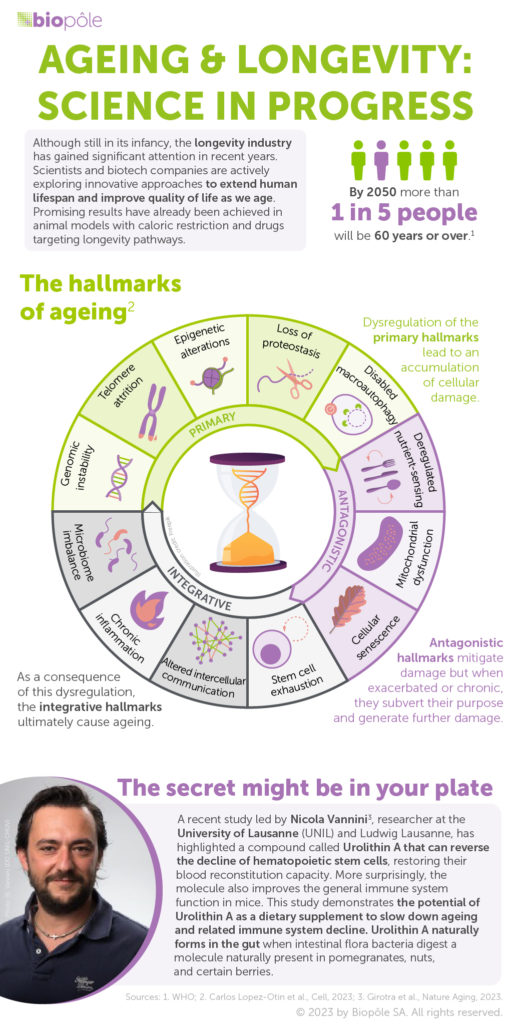Drawing on her experience at one of the world’s most renowned longevity clinics, Olga Donica describes what lies ahead in the quest to slow ageing.
A baby born today is likely to live until they’re 100. Thanks to enormous progress in medicine and healthcare, what was once considered a remarkably long lifespan will soon become the norm. There’s a catch, though. When we live longer, we are more likely to get an array of age-related diseases and conditions, making the goal of a long, healthy lifespan difficult to achieve.
The challenge in longevity, then, is to enhance both lifespan and healthspan. That is, the years we live at our full potential with robust physical, mental and social health. In short, well enough to enjoy life. But how might this be achieved? To slow ageing, we’ll need to tackle it on many fronts.
There’s no such thing as average
Firstly, it’s clear that to live longer lives, we’ll need holistic, personalised solutions. Today, we still refer to standardised guidelines regarding health, nutrition and disease management. When we follow and apply these, we expect to collect and obtain the same response in all individuals. The major flaw in this approach is that guidelines are always based on an average. Yet what we’ve come to realise is that there is a high level of interindividual variability in how people respond to an intervention. In short, each of us reacts to the same health solution in a different manner.
Certain rules have been drummed into us all when it comes to food. Thanks to continuous glucose monitoring technology, we’ve learnt that individuals’ metabolic responses to the same foods vary widely, and the results can be surprising. White bread makes one person’s blood sugar levels spike, while it has no effect on someone else of the same age and gender. The lesson is clear: if we’re to live longer, individualised solutions will be far more effective than the one-size-fits-all approach that currently dominates our healthcare systems. As well as moving towards personalised medicine, healthcare systems will need to shift from treatment to prevention.
The power of tech to track our health
How will this double shift – from generalised to personalised, and from reactive to proactive – happen? It will rely heavily on innovative technology. Tracking and assessing our health through smart tools will allow early-stage interventions that will help to significantly extend healthspans. In the field of personalised care, many start-up and biotech companies are building tiny, elegant, non-invasive devices that monitor our health markers, measuring everything from stress levels to metabolic processes. These high-precision tools will help us fine-tune our diet, lifestyle or medication, addressing each area in a highly individualised way.

